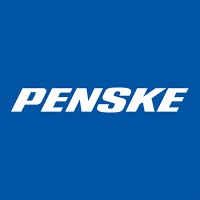
Penske Logistics Company Cyber Security Posture
penskelogistics.comPenske Logistics is a Penske Transportation Solutions company headquartered in Reading, Pennsylvania. The company is a leading provider of innovative supply chain and logistics solutions. Penske offers solutions including dedicated transportation, distribution center management, lead logistics, freight management, transportation management, freight brokerage, and a comprehensive array of technologies to keep the world moving forward. We serve a variety of industries including: automotive; food, beverage, grocery, wine and spirits; cold chain; convenience and drug stores; quick service restaurants (QSRs); retail; big box retailers; building and construction products; CPG; healthcare; energy; industrial manufacturing; consumer appliances and consumer electronics; and many others. Visit PenskeLogistics.com to learn more.
Penske Logistics Company Details
penske-logistics
10625 employees
170325.0
484
Truck Transportation
penskelogistics.com
Scan still pending
PEN_6956200
In-progress
Between 900 and 1000
This score is AI-generated and less favored by cyber insurers, who prefer the TPRM score.
 Penske Logistics Global Score
Penske Logistics Global Score.png)

Penske Logistics Company Scoring based on AI Models
| Model Name | Date | Description | Current Score Difference | Score |
|---|---|---|---|---|
| AVERAGE-Industry | 03-12-2025 | This score represents the average cybersecurity rating of companies already scanned within the same industry. It provides a benchmark to compare an individual company's security posture against its industry peers. | N/A | Between 900 and 1000 |
Penske Logistics Company Cyber Security News & History
| Entity | Type | Severity | Impact | Seen | Url ID | Details | View |
|---|
Penske Logistics Company Subsidiaries

Penske Logistics is a Penske Transportation Solutions company headquartered in Reading, Pennsylvania. The company is a leading provider of innovative supply chain and logistics solutions. Penske offers solutions including dedicated transportation, distribution center management, lead logistics, freight management, transportation management, freight brokerage, and a comprehensive array of technologies to keep the world moving forward. We serve a variety of industries including: automotive; food, beverage, grocery, wine and spirits; cold chain; convenience and drug stores; quick service restaurants (QSRs); retail; big box retailers; building and construction products; CPG; healthcare; energy; industrial manufacturing; consumer appliances and consumer electronics; and many others. Visit PenskeLogistics.com to learn more.
Access Data Using Our API

Get company history
.png)
Penske Logistics Cyber Security News
Penske Logistics slashing 330 jobs in Missouri
Penske Logistics plans to lay off 337 warehouse and other workers in Missouri due to the loss of a contract.
Class Action Alleges Penske Logistics Used AI-Powered Cams in ‘Monitoring Regime’ Without Consent
One trucking company's monitoring technology has left it open to a scan-dal. A class-action lawsuit filed by Jeremy Ratliff alleges that ...
Trucking Grapples With Evolving Cybersecurity Threats
The trucking and logistics sectors face an increasingly evolving cybersecurity landscape as more operations become integrated with computers. “ ...
Penske Logistics details Shelbyville warehouse transition
(Inside INdiana Business) — Pennsylvania-based Penske Logistics LLC says a change in operation of a Kroger warehouse facility in Shelbyville ...
Penske Logistics slashes over 200 truck driver and warehouse jobs
A major logistics company filed paperwork this week stating that it plans to cut more than 200 truck driver and warehouse jobs at its ...
Major cyber attack by BlackSuit ransomware disables CDK Global’s operations
In a recent cyber attack update, CDK Global has been hit hard by the BlackSuit ransomware gang, causing a significant IT outage that has ...
Peck named to head Epes Transport, Penske Logistics’ truck unit
Multinational third-party logistics provider Penske Logistics said Monday that Phil Peck has been named president of the company's Epes ...
Midwest furniture retailer Loves goes Chapter 11, blames Penske Logistics
A startup Midwestern furniture retailer has filed for Chapter 11 bankruptcy protection less than a year after it began hiring management staff.
Penske Logistics to acquire Epes Transport Systems
Penske Logistics has reached agreement in principle to acquire Epes Transport Systems, of Greensboro, NC. The deal, expected to be finalized ...

Penske Logistics Similar Companies
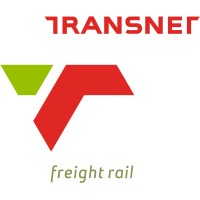
Transnet Freight Rail
Transnet Freight Rail is the largest division of Transnet SOC Ltd. It is a world class heavy haul freight rail company that specialises in the transportation of freight. The company maintains an extensive rail network across South Africa that connects with other rail networks in the sub-Saharan reg
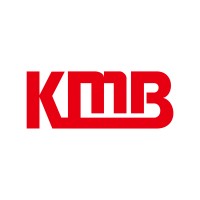
The Kowloon Motor Bus Company (1933) Limited
Established in 1933, The Kowloon Motor Bus Company (1933) Limited ("KMB") is the largest franchised bus operator in Hong Kong, serving more than 2.8 million passenger-trips each day. A workforce of more than 12,300 employees, including some 10,000 bus captains, ensures that customers enjoy high-qual
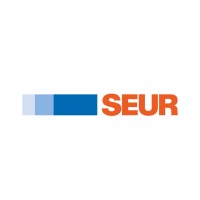
SEUR
SEUR, compañía pionera en el transporte urgente en España, lidera el sector con tres grandes ejes de negocio: internacional, comercio electrónico y envíos a temperatura controlada. En el último año hemos realizado más de 120 millones de envíos a nivel nacional, y como parte de Geopost, la r
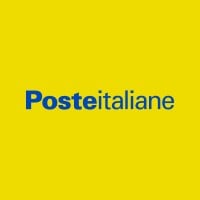
Poste Italiane
With our over 160-year history, approximately 120,000 employees and 12,800 post offices, total financial assets of €580 billion and 35 million customers, the Group occupies a unique position in terms of size, recognisability, reach and customer loyalty. Poste Italiane is Italy's largest service inf

Schneider
Put us on the job and consider it done. Schneider is a premier provider of transportation and logistics services headquartered in Green Bay, Wisconsin, and with offices in Chicago, Dallas and many cities in between. Offering one of the broadest portfolios in the industry, Schneider’s solutions inclu
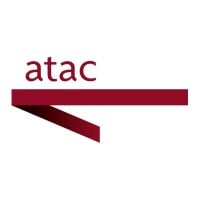
ATAC SpA
With over 100 years of history, Atac is Rome's municipal utility for public transport services and Italy's leading urban mobility operator, as well as being one of the largest Local Public Transport companies in Europe. From the historical centre to the outskirts, Atac’s network covers a territor

Frequently Asked Questions
Explore insights on cybersecurity incidents, risk posture, and Rankiteo's assessments.
Penske Logistics CyberSecurity History Information
How many cyber incidents has Penske Logistics faced?
Total Incidents: According to Rankiteo, Penske Logistics has faced 0 incidents in the past.
What types of cybersecurity incidents have occurred at Penske Logistics?
Incident Types: The types of cybersecurity incidents that have occurred include .
Incident Details
What are the most common types of attacks the company has faced?
Additional Questions
What Do We Measure?
















Every week, Rankiteo analyzes billions of signals to give organizations a sharper, faster view of emerging risks. With deeper, more actionable intelligence at their fingertips, security teams can outpace threat actors, respond instantly to Zero-Day attacks, and dramatically shrink their risk exposure window.
These are some of the factors we use to calculate the overall score:
Identify exposed access points, detect misconfigured SSL certificates, and uncover vulnerabilities across the network infrastructure.
Gain visibility into the software components used within an organization to detect vulnerabilities, manage risk, and ensure supply chain security.
Monitor and manage all IT assets and their configurations to ensure accurate, real-time visibility across the company's technology environment.
Leverage real-time insights on active threats, malware campaigns, and emerging vulnerabilities to proactively defend against evolving cyberattacks.




